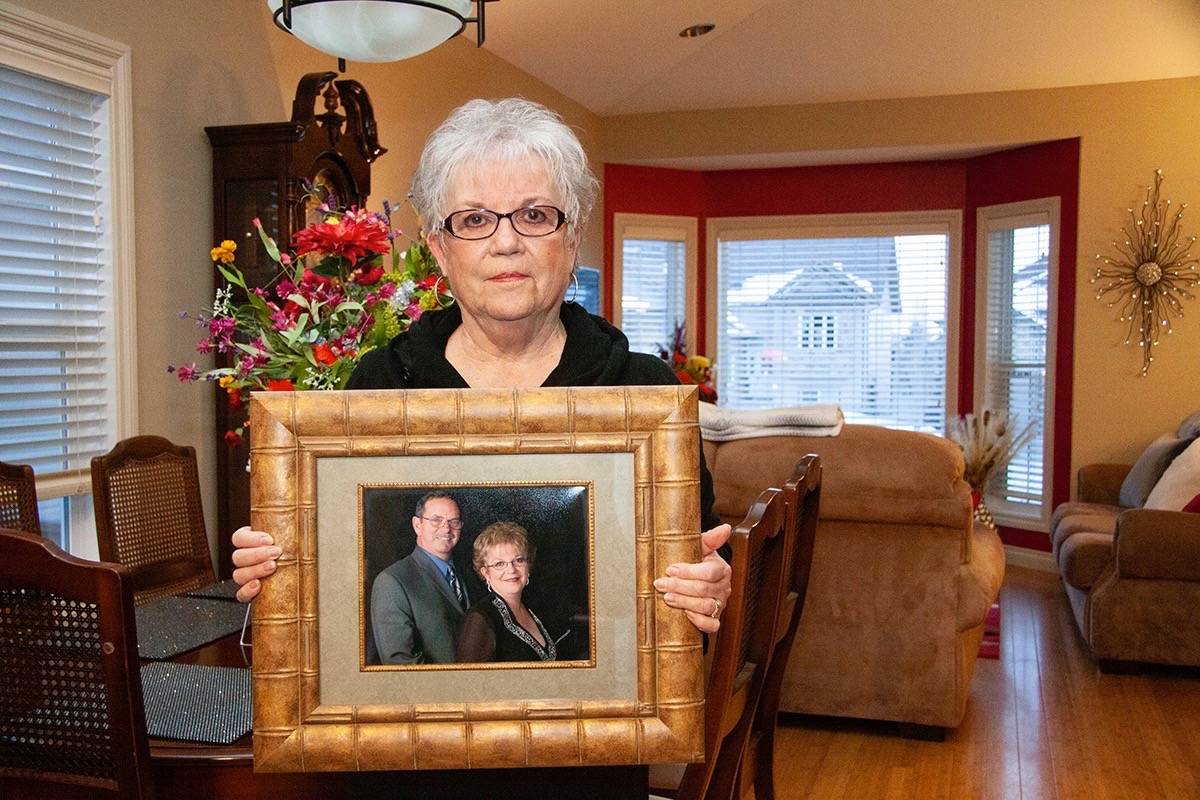A Central Alberta woman is hoping her story of walking with her late husband through a dementia diagnosis can help encourage others as they face similar journeys.
Linda Tomlinson’s husband Wendell was diagnosed in 2012 with a form of dementia where he had bleeds in the brain, she said.
Wendell, also a father to two daughters and a grandfather, passed away May 29th, 2018 at the age of 70.
“Not being familiar with the disease, we never had anyone in the family with dementia or Alzheimer’s, so I was really unaware of what was ahead,” she explained.
Linda started attending a support group last May through the Alzheimer Society of Alberta Red Deer office and quickly found a warm, welcoming and supportive environment.
“I thought I was dealing well with it, but I found out otherwise. It’s very stressful, because you don’t know how to deal with this disease. So the support group taught me that you can’t change their way of thinking; you have to change the way you are dealing with the situation,” she said.
“You are also putting yourself under more and more pressure trying to deal with it as best you know how.”
Linda said her husband’s dementia progressed faster than what doctors had originally thought it would.
“We had noticed a few things with conversations, as in him trying to grasp conversations with friends,” she explained, referring to the period prior to his diagnosis when symptoms started to surface. An increasing level of forgetfulness led them to check things out with a doctor.
From there, they were referred to a neurologist in Edmonton and the diagnosis was made. Wendell was told he didn’t have Alzheimer disease, but Linda pointed out that at the time, she didn’t know there were 41 types of dementia – of which Alzheimer disease is just one.
At first, she said there was a sense of being able to cope with the coming challenges. “But slowly, it was taking me with it. I know I wouldn’t have been able to handle much more had I not gone for help,” she said.
“You don’t know the process of it. With the support group, it was such a shock the first time I went because I wasn’t expecting to hear what I was hearing and where it was leading us. It’s a disease that you have to try and keep a step ahead of or it will just consume you.
“Your stress level is just over the roof day in and day out, dealing with it on your own. And as the disease progressed, of course he changed. Things weren’t as easy as they were at the beginning. So it was just dealing with different aspects of the disease that I didn’t understand.”
For Linda, joining the support group was also key to helping her navigate through the illness as a caregiver.
Unfortunately, it came quite late in the progression of Wendell’s condition.
“I had no idea that there was respite out there to help. We kind of lived our lives the way they were, and thought, okay, we have an issue and we are going to deal with it. I had no idea how fast it would progress. So it was a lifesaver to go to that support group.”
Wendell eventually collapsed at home in January of last year and was admitted to the hospital.
“We lived on an acreage. He was a very talented man, and he did mechanical work and woodworking, and he had every kind of equipment in the shop that you would want.”
But it was also becoming unsafe for him to keep trying to do the same kind of work he had been so used to doing. Seeing him have to gradually give up so much of what he loved to do was heartbreaking, recalled Linda.
After he collapsed, he was in the hospital for several months awaiting placement in long-term care, which he was granted.
“He collapsed there on May 20th and didn’t recover from that, and he passed away nine days later.”
The final months were increasingly tough as well as Wendell was showing a bit more aggression as the disease progressed – out of character for the man she had been married to for 50 years and who she described as kind and good.
With dementia, loved ones can at times behave in ways they never would have before, or they can become uncharacteristically aggressive or outspoken.
For caregivers, taking it all step by step in a supportive environment is ultimately the best, most helpful way to go.
“I think the best thing is to get out and get the help,” said Linda, who still attends the support group and now finds much fulfillment and purpose in sharing her own experiences with others.
”I thought I could handle it on my own, but without the support group I don’t know where I would have been. There is help out there.”
Check out Alzheimer.ca for more information.



